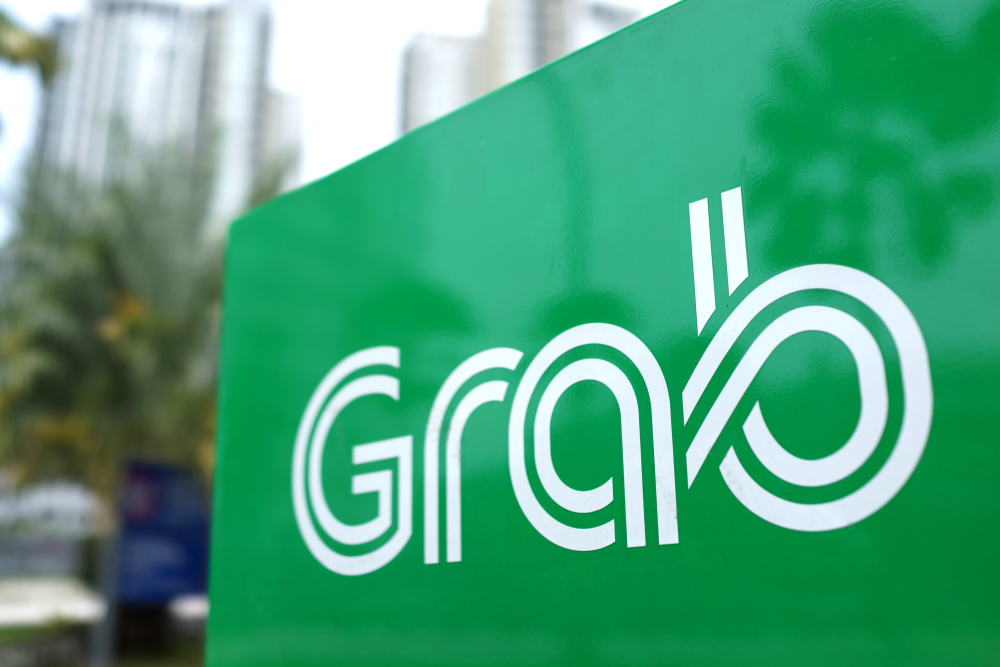Grab’s plan for a US listing has revealed some of the Singapore tech unicorn’s key information, from its ownership structure to financials to valuations. It also has some implications for Southeast Asian rivals like Indonesia’s Gojek as they prepare for future listings.
Here are five take-aways from the much-anticipated IPO plan.
Grab CEO Tan to hold strong voting power
According to the filing by Altimeter Growth Corp., the special purpose acquisition company, or SPAC, with which Grab will merge for the listing, Grab CEO Anthony Tan, co-founder Tan Hooi Ling and President Ming Maa will have “Class B” shares, which come with more voting rights. Their shares account for 3.3% of total shares but 60.4% of the weighted voting.
Notably, the shares held by Tan Hooi Ling and Maa “will be deemed beneficially owned by [Anthony] Tan,” the document notes, “pursuant to a shareholders’ deed to be entered into concurrently with the business combination agreement, irrevocably appointing [Anthony] Tan as attorney-in-fact and proxy to vote all of their Class B ordinary shares.” This implies the CEO will carry much weight in decision-making.
The ownership structure suggests that the company wishes to speed up decision-making while also securing some governance by keeping their ownership below two-thirds of total voting power.
Meanwhile, the biggest shareholders will be the SoftBank Vision Fund, which will hold 18.6% of all shares; Uber Technologies, 14.3%; Chinese ride-hailing company Didi Chuxing, 7.5%; and Toyota Motor, 5.9%.
Grab’s accumulated losses reach USD 10 billion
Grab marked net losses of more than USD 2 billion for at least three consecutive years through 2020, according to the documents released on Tuesday. The net loss in 2020 was USD 2.7 billion, versus net revenue of USD 1.19 billion. Achieving profitability will be a key challenge.
The balance sheet shows accumulated losses reached USD 10 billion as of the end of 2020, leading to negative shareholder equity of about USD 6.2 billion. Total assets were USD 5.5 billion, while total liabilities were USD 11.7 billion.
Grab plans to manage costs while increasing its business toplines. CFO Peter Oey said in a webcast for investors that optimizing sales and marketing expenses, fixed and head-count costs, and cloud and other technology costs, will contribute to long-term profitability.
On an EBITDA (earnings before interests, taxes, depreciation and amortization) basis, Grab forecasts that it will turn profitable in 2023, by USD 500 million, compared with a USD 800 million loss last year.
Read more: Grabbing the wheel: Inside the company that ran Uber off the road en route to the largest SPAC merger ever
Delivery to be Grab’s biggest segment over next three years
Grab’s core business used to be ride-hailing, but the delivery business has grown rapidly in recent years, partly driven by the work-from-home trend, and is expected to continue to be the major driver.
The delivery business marked gross merchandise value — which measures sales of goods owned by others — of USD 5.5 billion in 2020. It accounted for about 44% of Grab’s total GMV. The delivery business will continue to be Grab’s biggest GMV source through 2023, according to the company’s projections.
The plan also says the delivery segment will turn a profit this year on an EBITDA basis.
During a Nikkei Asia online interview on Tuesday, CEO Tan said Grab will “build the lowest cost and the most efficient delivery network” by investing in maps and other technology, adding that Southeast Asia’s food delivery penetration is still low.
Grab recognizes Myanmar risk
In its investor presentation, Grab raised about 50 risk factors. One bullet point entry reads, “Grab may be affected by governmental economic and trade sanctions laws and regulations that apply to Myanmar,” referring to the country whose economy has deteriorated since the Feb. 1 coup.
Grab entered Myanmar in 2017, one of the latest launch among the eight markets it operates in, offering transport and delivery services. But it appears these businesses have been affected by the internet disruption and other difficulties since the coup sparked mass protests and corresponding crackdowns.
Other risk factors Grab raised include “intense competition across the segments and markets it serves” and “public health threats.”
Read more: Grab steers into New York for world’s largest SPAC merger

Implications for Gojek and other rivals
Grab’s SPAC valuation sets a standard for when Indonesia’s Gojek goes public.
Gojek is nearing a merger with fellow Indonesian tech giant Tokopedia, with plans for the merged entity to go public. One person familiar with the Gojek-Tokopedia talks said they will be aiming for a valuation “similar or higher” to Grab’s USD 39.6 billion valuation as the “Gojek-Tokopedia entity would have an e-commerce arm.”
Internet shopping is a rapidly growing sector amid COVID-19 restrictions and one the merger partners hope will appeal to potential investors.
But the bigger picture is that Gojek and other Southeast Asian tech companies planning to go public are supportive of Grab’s deal. It comes with talks on funding for blank-check company deals drying up as private investment in public equity, known as PIPE, becomes overwhelmed by rising valuations.
The Grab deal, the biggest SPAC merger to date, has proved that even amid talk of SPAC deals slowing down, huge investor appetite remains in Southeast Asian tech companies. This is a welcome development for the region’s tech companies, who now might be able to leverage Grab’s deal to negotiate better terms with potential investors.
Other startups contemplating going public via a SPAC include Indonesian tech unicorns Traveloka, the country’s answer to Expedia, and Bukalapak, one of the biggest e-commerce platforms.
Their only hope is for Grab shares not to plunge after the company starts trading on NASDAQ and sow doubt toward Southeast Asian tech companies.
This article first appeared on Nikkei Asia. It’s republished here as part of 36Kr’s ongoing partnership with Nikkei.

